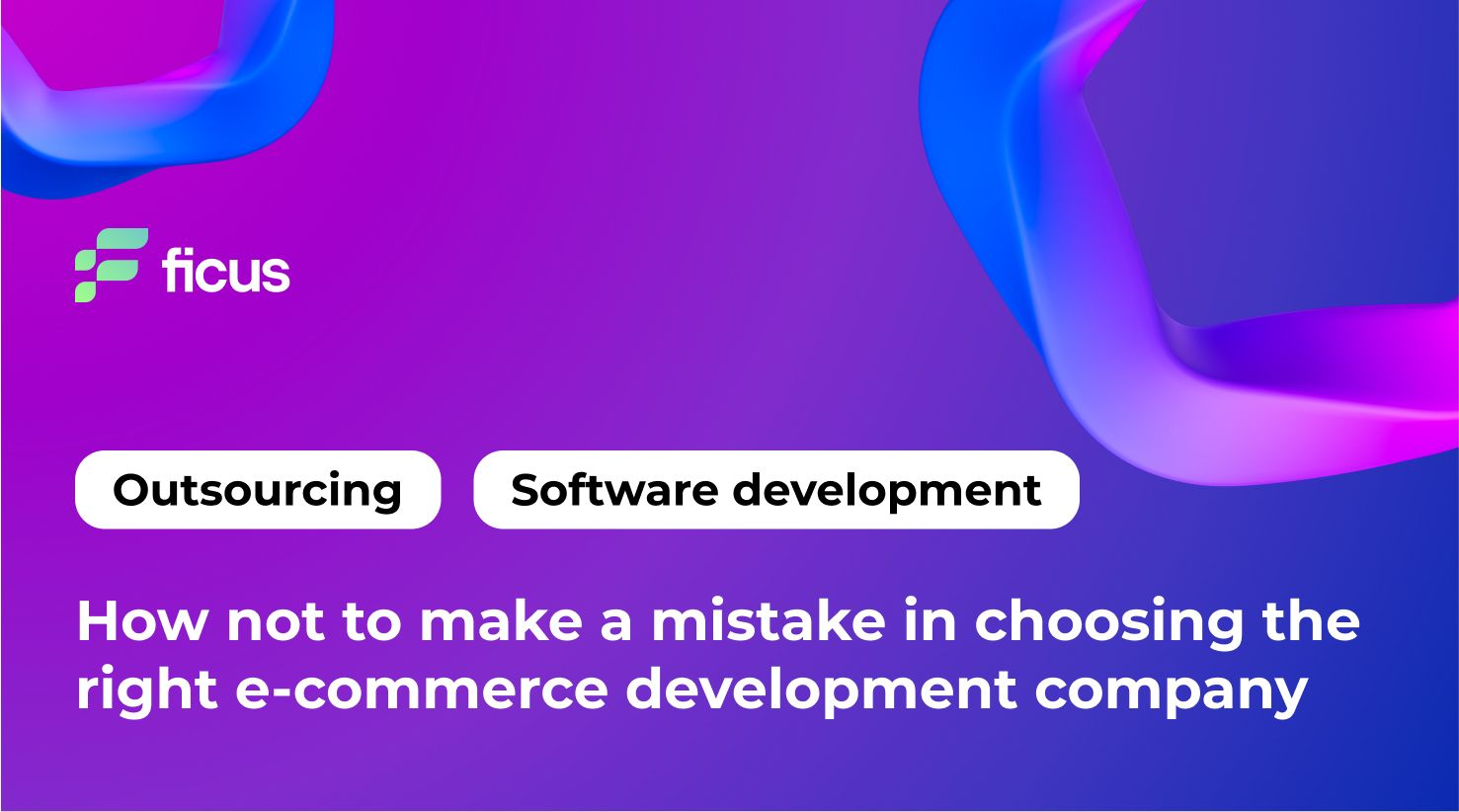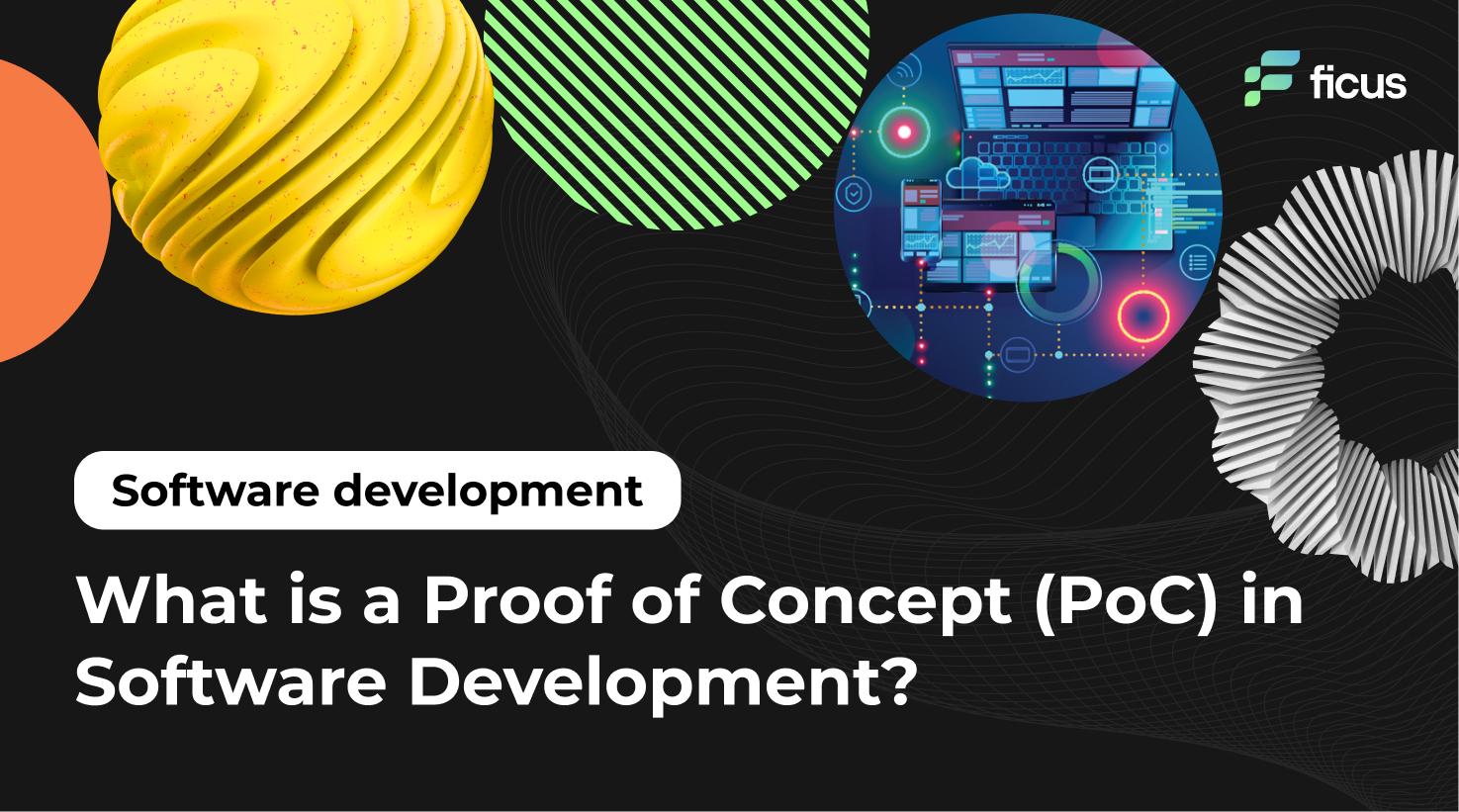In today’s digital age, selecting the right e-commerce development company is crucial for business success. Your choice can significantly impact your business growth, operational efficiency, and overall online presence. An expert e-commerce development company can turn your digital store into a robust platform that attracts customers, enhances user experience, and drives sales.
Choosing the right agency isn’t just about finding someone to build a website; it’s about finding a partner who understands your business goals, can offer tailored solutions, and supports your growth. In this article, we’ll explore how to choose an e-commerce development company that aligns with your needs and expectations. We’ll cover the importance of this decision, what e-commerce development companies do, and the key services they offer.
- Assess needs, engage a skilled team, and verify reliability.
- Effective project management and quality assurance ensure e-commerce success.
- Ficus Technologies is your trusted e-commerce development partner for excellence.
What is an E-commerce Development Company?
An e-commerce development company is a specialized agency focused on creating, designing, and maintaining online stores and shopping platforms. Their role is to turn your vision into a functional, user-friendly digital storefront that meets the needs of your target audience. They handle everything from initial site design to backend development, ensuring that your online store operates smoothly and securely.
What an E-commerce Development Company Does
An e-commerce development company plays a multifaceted role in the success of your online business. They are responsible for:
- Custom Development: Tailoring solutions to fit your specific business requirements and goals.
- Platform Selection: Helping you choose the right e-commerce platform based on your needs.
- Design and User Experience: Creating an engaging and intuitive interface that enhances the shopping experience.
- Integration: Connecting your store with various tools and services like payment gateways, shipping solutions, and marketing tools.
- Testing and Optimization: Ensuring your site performs well across different devices and platforms, and optimizing it for speed and functionality.
- Support and Maintenance: Providing ongoing support to address any issues and keep your site up-to-date with the latest technologies.
Key Services Provided
When selecting an e-commerce development company, it’s important to understand the range of services they offer. These typically include:
- Design and Development: Crafting custom designs and developing the site using suitable frameworks and technologies.
- Integration Services: Seamlessly integrating with third-party tools and platforms for enhanced functionality.
- Marketing Solutions: Implementing digital marketing strategies to drive traffic and increase sales.
- Scalability and Support: Offering solutions that grow with your business and providing ongoing support for any issues that arise.
In summary, choosing the right e-commerce development company involves more than just picking a provider. It requires finding a partner who can deliver a platform that aligns with your business goals, provides a smooth user experience, and supports your growth.

The Benefits of Hiring an E-commerce Development Company
Expertise and Experience
Partnering with a professional e-commerce development company brings a wealth of expertise and experience to your project. These companies have a deep understanding of the complexities involved in building and maintaining an online store. Their team of experts is well-versed in the latest technologies, design trends, and best practices, which can greatly enhance your e-commerce platform. For more on this, explore the Power of E-commerce Development Solution.
Professional expertise ensures that your website is built with a strong foundation, incorporating advanced features and functionalities that align with your business goals. Experienced developers can anticipate potential challenges and address them proactively, reducing the risk of costly mistakes and ensuring a smoother development process. Their knowledge of industry standards and emerging trends allows them to create a platform that not only meets current expectations but is also future-proofed for upcoming advancements.
Scalable Website Solutions
Scalability is a crucial factor for any e-commerce business looking to grow. An e-commerce development company can design and implement scalable solutions that accommodate future growth and increased traffic. This means your website will be able to handle a growing number of products, customers, and transactions without compromising performance.
Scalable solutions ensure that your platform can adapt to changing business needs, such as expanding product lines, entering new markets, or handling seasonal spikes in traffic. By planning for scalability from the start, you can avoid costly overhauls and ensure that your site remains efficient and effective as your business evolves.
Customization and Innovation
One of the key advantages of working with a specialized e-commerce development company is their ability to provide customized solutions tailored to your unique needs. Unlike generic templates or off-the-shelf solutions, a bespoke development approach allows for a high degree of personalization, ensuring that your online store aligns perfectly with your brand identity and business objectives. For a deeper understanding of how Custom E-commerce Development can drive success, check out our blog section.
A specialized company can also offer innovative features and functionalities that set your e-commerce platform apart from the competition. Whether it’s integrating advanced payment options, implementing cutting-edge security measures, or developing custom tools to enhance the user experience, their expertise in innovation can help you stay ahead in a competitive market. Tailored solutions ensure that your platform is not only functional but also optimized for your specific customer base and business model.
How to Choose the Right E-commerce Development Company?
Choosing the right e-commerce development company is a critical decision that can shape the success of your online store. Here’s a step-by-step guide to help you navigate the selection process and find a partner that meets your business needs and goals.
Identify Your E-commerce Needs and Objectives
Before you start looking for an e-commerce development company, it’s essential to have a clear understanding of your needs and objectives. Consider the following questions:
- What are your business goals? Define what you aim to achieve with your e-commerce site, such as increasing sales, expanding market reach, or improving customer engagement.
- What features do you need? Identify specific functionalities you require, such as product catalog management, payment processing, customer accounts, or advanced analytics.
- What is your target audience? Understanding your customers’ preferences and behaviors can guide the development of a user-friendly and effective platform.
Having a well-defined set of requirements and objectives will help you communicate your needs clearly to potential development partners and ensure they can deliver a solution that aligns with your goals.
Explore Available E-commerce Development Agencies
Once you have a clear picture of your needs, start researching available e-commerce development agencies. Look for companies with a strong track record in building successful online stores. Here are some ways to find potential partners:
- Online Research: Use search engines and directories to find e-commerce development companies.
- Industry Recommendations: Seek recommendations from industry peers or business networks.
- Portfolios and Case Studies: Review the portfolios and case studies of potential agencies to assess their capabilities and experience in developing e-commerce platforms.
Exploring multiple agencies will give you a broad perspective on the options available and help you identify the most suitable candidates for your project.
Assess Experience and Skill Set
Evaluating the experience and skills of e-commerce development companies is crucial to ensure they have the expertise to handle your project effectively. Consider the following:
- Industry Experience: Look for companies with experience in your industry or with similar business models. This can be a good indicator of their ability to understand and address your specific needs.
- Technical Expertise: Assess their proficiency in relevant technologies, platforms (such as Shopify, Magento, WooCommerce), and development frameworks.
- Past Projects: Review their previous work to gauge the quality and complexity of the projects they’ve handled.
A company with a proven track record and relevant expertise is more likely to deliver a high-quality, successful e-commerce platform.
Review Costs and Pricing Structures
Understanding the costs and pricing structures of potential e-commerce development companies is essential for budgeting and financial planning. Consider the following aspects:
- Pricing Models: Different companies may offer various pricing models, such as fixed-price contracts, hourly rates, or milestone-based payments. Choose a model that aligns with your budget and project scope.
- Cost Breakdown: Request a detailed cost breakdown to understand what is included in the pricing, such as design, development, testing, and ongoing support.
- Additional Expenses: Be aware of any potential additional costs, such as licensing fees, third-party integrations, or future maintenance.
Comparing costs and pricing structures will help you find a company that offers good value for money and fits within your budget.
Examine Client Feedback and Testimonials
Client feedback and testimonials provide valuable insights into the reliability and quality of an e-commerce development company. Look for the following:
- Reviews and Ratings: Check online reviews and ratings on platforms like Clutch, Google Reviews, or Yelp.
- Client Testimonials: Read testimonials on the company’s website to understand their strengths and areas of expertise.
- References: Ask for references from past clients to gain direct feedback on their experience with the company.
Positive feedback and strong testimonials are good indicators of a company’s ability to deliver on its promises and provide satisfactory service.
Evaluate Communication and Project Management
Effective communication and project management are crucial for the success of any e-commerce development project. Assess the following aspects:
- Communication Channels: Ensure the company has clear and reliable communication channels, such as email, phone, or project management tools.
- Responsiveness: Evaluate their responsiveness and willingness to address your questions and concerns promptly.
- Project Management Approach: Understand their project management approach, including how they handle timelines, milestones, and deliverables.
Strong communication and project management practices contribute to a smooth development process and help prevent misunderstandings and delays.
Look into Additional Services Offered
Finally, consider any additional services offered by the e-commerce development company that could add value to your project. These may include:
- Ongoing Support: Post-launch support and maintenance to address any issues and keep your site up-to-date.
- Marketing Services: SEO, digital marketing, and advertising services to help drive traffic and increase sales.
- Training and Documentation: Training for your team and comprehensive documentation to ensure you can manage the platform effectively.
Additional services can enhance the overall value of the partnership and provide ongoing support for your e-commerce business.
Ready to elevate your e-commerce venture? Partner with Ficus Technologies today!
Contact UsMaking the Final Decision: What to Do After Choosing an E-commerce Development Company
After selecting an e-commerce development company, the next crucial steps involve comparing proposals, finalizing the agreement, and ensuring legal protection. Here’s how to navigate this phase effectively:
Comparing Proposals and Making the Choice
When you receive proposals from different e-commerce development companies, it’s essential to evaluate and compare them thoroughly to make an informed choice. Here’s how to approach this:
- Evaluate Deliverables: Compare what each company is offering in terms of deliverables. Ensure that their proposals include all the essential components of your project, such as design, development, integration, and testing.
- Assess Timelines: Look at the proposed timelines for project completion. Ensure that the timelines are realistic and align with your business needs.
- Review Costs: Compare the costs outlined in each proposal, including any additional expenses or potential hidden costs. Ensure that the pricing is transparent and matches your budget.
- Check Expertise: Confirm that the companies have the necessary expertise and experience to handle your project requirements effectively.
- Analyze Support and Maintenance: Consider the level of post-launch support and maintenance offered by each company. Ensure that you have a clear understanding of how they will handle any issues that arise after the site goes live.
Key factors to consider when making the final decision include the overall value offered, the company’s ability to meet deadlines, its experience with similar projects, and the quality of its customer service. Make sure to choose a company that aligns with your business goals and can deliver a solution that meets your expectations.
Contractual and Legal Considerations
Once you have made your choice, it’s time to finalize the contract and address any legal aspects to ensure protection and clarity. Here’s what to include:
- Scope of Work: Clearly define the scope of work in the contract, including all deliverables, milestones, and project timelines. This helps prevent scope creep and ensures both parties have a mutual understanding of the project.
- Payment Terms: Outline the payment terms, including the payment schedule, milestones for payment, and any additional costs that may arise. Make sure the terms are fair and transparent.
- Intellectual Property Rights: Specify the ownership of intellectual property rights, including the design, code, and content. Ensure that you retain ownership of all deliverables.
- Confidentiality Agreement: Include a confidentiality agreement to protect sensitive business information and data shared during the project.
- Support and Maintenance: Detail the terms for post-launch support and maintenance, including the duration, scope, and cost of any ongoing services.
- Termination Clause: Define the conditions under which either party can terminate the contract and the associated penalties or procedures.
Legal aspects to ensure protection include verifying that the contract complies with relevant laws and regulations and seeking legal advice if necessary. Ensuring that all terms and conditions are clear and agreed upon helps prevent disputes and ensures a smooth working relationship.
Final Thoughts
Choosing the right e-commerce development company is a pivotal step towards establishing a successful online presence. By thoroughly assessing your needs, exploring options, and carefully evaluating proposals, you can find a partner that aligns with your business goals and offers the expertise required for a successful project.
At Ficus Technologies, we understand the critical role that selecting the right e-commerce development partner plays in achieving your business goals. Our team of experts is dedicated to bringing your e-commerce vision to life with professionalism and commitment. With a proven track record of successful projects, a transparent and collaborative approach, and a strong emphasis on post-launch support, we are well-positioned to be your ideal e-commerce development partner.
Once you’ve made your choice, it’s crucial to finalize the contract with clear terms and legal protections to safeguard your interests. Following these steps will help ensure a smooth development process and set the stage for a robust and effective e-commerce platform that drives business growth and enhances customer satisfaction.
Ensure the company uses SSL certificates for encryption, complies with data protection regulations like GDPR or PCI-DSS, and provides regular updates and backups. Look for strong access controls and data encryption practices.
Costs typically range from $5,000 to $20,000 for basic sites and can exceed $100,000 for complex projects. Development usually takes between 2 to 6 months, depending on the project’s complexity.
Select a model based on your goals and audience: B2C for selling directly to consumers, B2B for selling to other businesses, C2C for peer-to-peer transactions, or subscription-based for recurring sales. Each model suits different types of products and market strategies.








